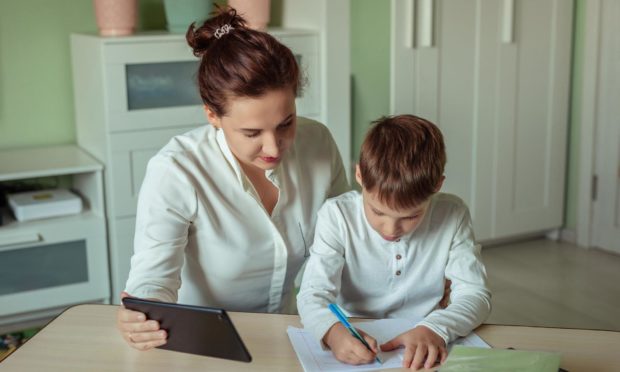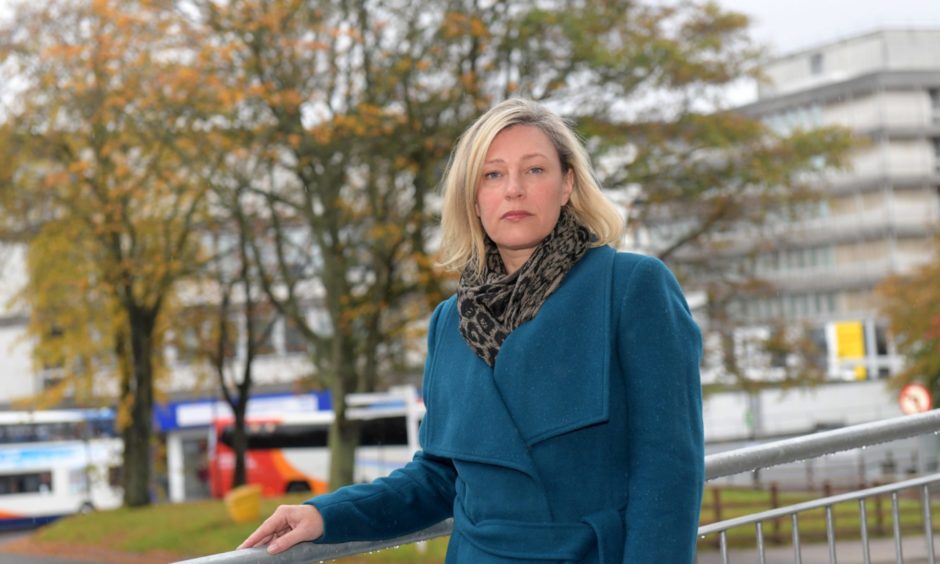Gender equality has “never been more exposed” than during the coronavirus pandemic, say MSPs.
Aberdeenshire East MSP Gillian Martin led a Holyrood members debate on Thursday to discuss the “disproportionate” impact of Covid-19 on women.
The SNP politician said women have been the “worst affected by the pandemic and the inequalities women were subjected to before have increased”.
Cross-party MSPs pointed to the impact of the closure of schools and nurseries as having increased the unpaid care demands on women, as well as “limiting work and economic opportunities” available to them.
Ms Martin said she fears the effects on women could be “long-lasting” and, as a result, must be factored into the economic recovery from Covid-19.
Within her asks, she wants to see the Scottish Government take a “serious look” at how to get employment law devolved to Scotland and to push for increased tax powers in order to fund more free childcare hours.
Existing inequalities
She said: “The Institute of Fiscal Studies found that in the first lockdown mothers did on average 50% more unpaid childcare and housework than fathers.
“Let’s also not forget the vast majority of single-parent households are run by women who may have lost their jobs or businesses.
“We all know the existing inequalities of the burden of unpaid care, the gender pay gap and the persistent gender-segregated employment.
“But what a different experience this pandemic would have been for women if more serious effort had been made by society to eradicate all of those inequalities.”
‘A watershed moment’
Rona Mackay said gender inequality has “never been more exposed than during this pandemic” with the country having reached a “watershed moment”.
She told MSPs women are more likely to work in the “shut down sectors” such as hospitality and retail, which was especially the case for black and minority ethnic (BAME) women and younger women.
She also pointed to the WASPI (Women Against State Pension Inequality) age group, which she said has suffered a “huge increase” in unemployment during the pandemic, adding that many of these women have had to keep working because they have “no pension that would allow them to retire yet”.
Huge thanks to @RBFMaguire @pauline4glasgow @elainesmithmsp @RonaMackaySNP @JoanMcAlpine @ClareAdamsonSNP @Rachael2Win for their on-point speeches on how Covid has disproportionately affected women in the economy. Bold, systemic change needed if we aren’t to roll back equality.
— Gillian Martin (@GillianMSP) February 11, 2021
Gendered approach to pandemic recovery
Ms Mackay said one woman had told her that during the pandemic she felt like she had “2020 responsibilities at work and 1950s home responsibilities”.
Ruth Maquire echoed calls for women to be at the forefront of the economic recovery post-Covid-19.
She argued it is likely that women’s equality and rights will “remain disadvantaged and may even slip backwards” unless governments take a “gendered approach” to emerging from the pandemic.
MSPs also heard how the highest rates of furlough were in the “female-dominated sectors” of hospitality and retail, with Joan McAlpine arguing the pandemic will have a “disproportionate long-term impact” on women and particularly working-class women, with many facing redundancy.
The debate follows the publication of a report by the House of Commons women and inequalities committee, which found government economic support policies have “skewed towards men” and overlooked the “caring inequalities faced by women”.
MPs on the Westminster committee have made more than 20 recommendations to government in the wake of the report, including making it easier for staff to get flexible working arrangements.
‘Much more still to be done’
Jamie Hepburn, the Minister for Business, Fair Work and Skills, said he “recognised the impact the pandemic has had on women in the Scottish economy”.
He added that the position of women must be “properly considered as part of our economic recovery as we come through and out of Covid-19”.
While the SNP minister said there is “much more still to be done” to support women in the Scottish economy, he pointed to a newly launched women returner programme run by the Scottish Government, set up to assist women to return to work after a career break.
He also highlighted his government’s £50 million self-employed hardship fund, which had helped women access financial support.
Mr Hepburn added: “We should acknowledge the pandemic has the potential to damage women’s employment opportunities long-term and increase the gender pay gap in the coming years.”


